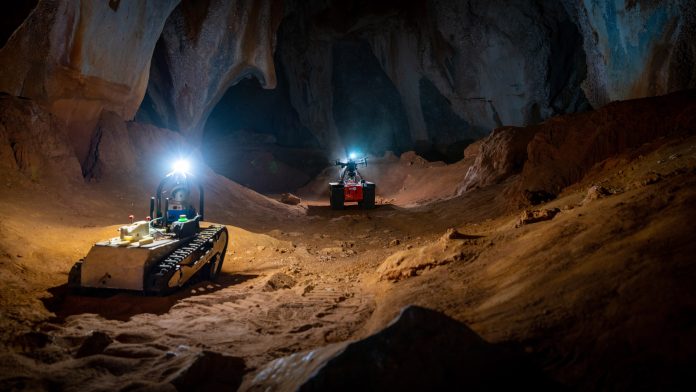
Australia’s national science agency, CSIRO, has launched a $12 million Collaborative Intelligence (CINTEL) Future Science Platform aimed at reinventing the way humans and Artificial Intelligence work together.
CINTEL intends to move away from the concept of replacing people or automating their jobs by establishing teams that maximize the benefits of both human and machine intelligence.
One of CINTEL’s initial projects will rely on the Robotics and Autonomous Systems Group of the CSIRO, which recently won a silver medal in the international DARPA Subterranean Challenge.
The ‘robot Olympics,’ as it was dubbed, required teams of robots to explore and discover objects in unmapped underground locations while being supervised by a human operator.
CINTEL Leader Dr Cécile Paris said lessons from the challenge could “help inform future human/robot teaming”.
“The project will focus on developing a richer, dynamic human-robot collaboration, enabling humans and robots to respond in real time to changes in the environment and make better decisions, together,” Dr Paris said.
“CINTEL will research dynamic situation awareness and mechanisms to ensure a collaborative dialogue between humans and robots throughout, for example, a rescue mission.
“Rescue missions are often ill defined and dynamic, and the humans must use their own knowledge and skills, like reasoning, intuition, adaptation and experience, to identify what the robots should be doing. CINTEL will investigate how humans can fully utilise their unique skillset in collaboration with the robots for successful outcomes.”
Other early CINTEL projects include the creation of a digital team member to assist scientists in making sense of the huge amounts of data in modern biological collections and the collaborative surveillance of cybersecurity analysts.
The program will be run by CSIRO in collaboration with research and impact partner Saber Astronautics, as well as Emesent, the Queensland AI Hub, TAFE Queensland, Aged Care Industry Technology Council, Global Community Resourcing, the Department of Defence, the Queensland University of Technology, and researchers from Monash University and the University of Sydney.
The purpose of the CINTEL initiative, according to Dr. Paris, is to take use of the fundamental differences between human and machine intelligence in order to achieve the best results.
“We’re used to hearing about machines competing with humans in games like chess,” Dr Paris continued.
“But what isn’t as well known is that humans collaborating with AI have proven superior to both the best AI systems and human chess players.
“Human intelligence is creative and adaptable, while machine intelligence is more specific and able to handle vast amounts of data.
Collaborative intelligence moves beyond the idea of machines replacing people or even just ‘keeping people in the loop’, aiming instead to unlock completely new capability by creating teams that maximise the benefits of both types of intelligence.”
CINTEL is a four-year project that will bring together behavioural and social scientists with computer, robotics, and domain expertise to develop general-purpose technologies to support collaborative human/machine teams.
The initiative is part of the CSIRO’s Future Science Platforms portfolio, which focuses on new and emerging opportunities for Australia through research and development.


















